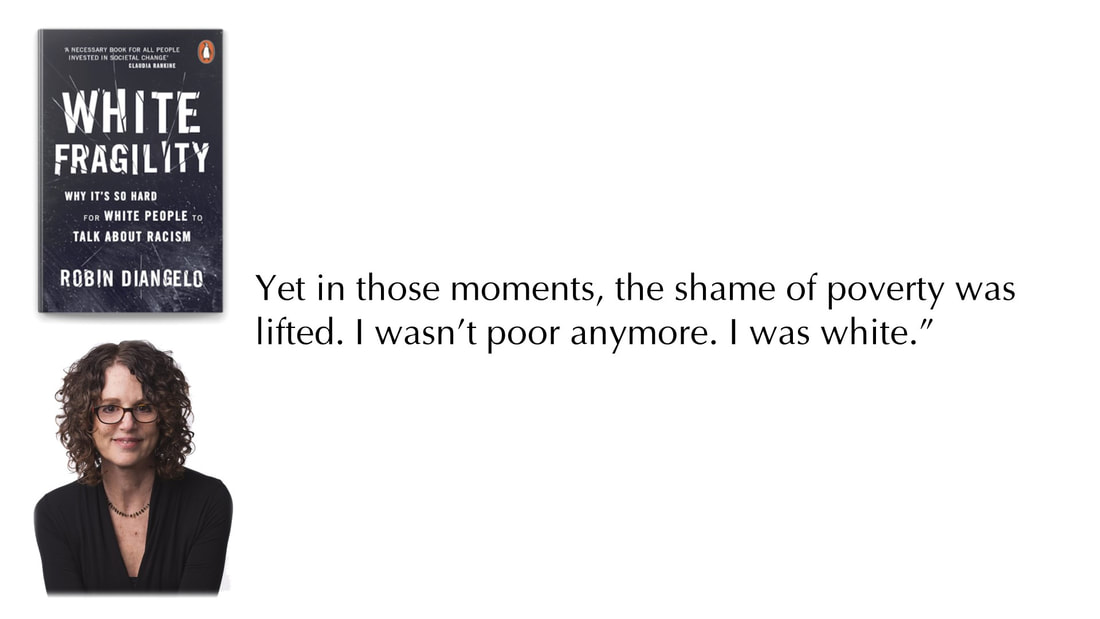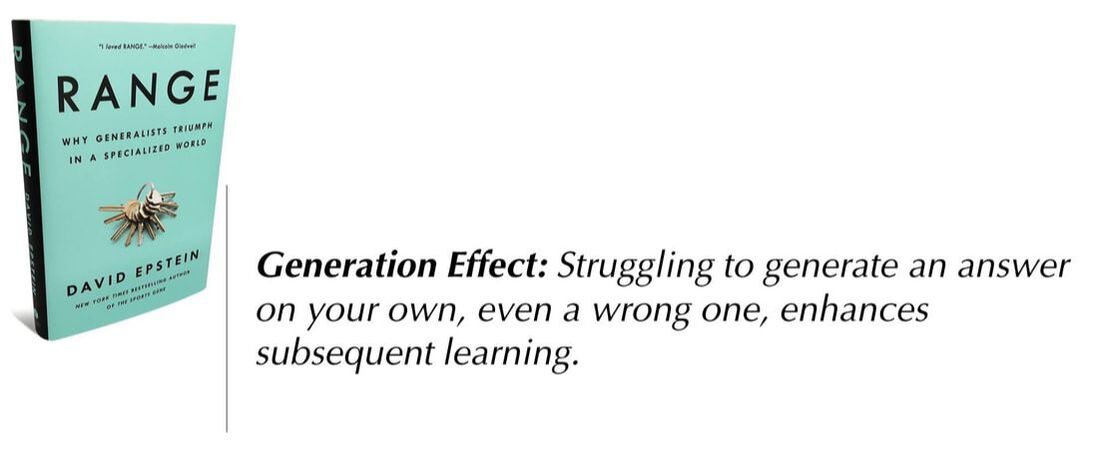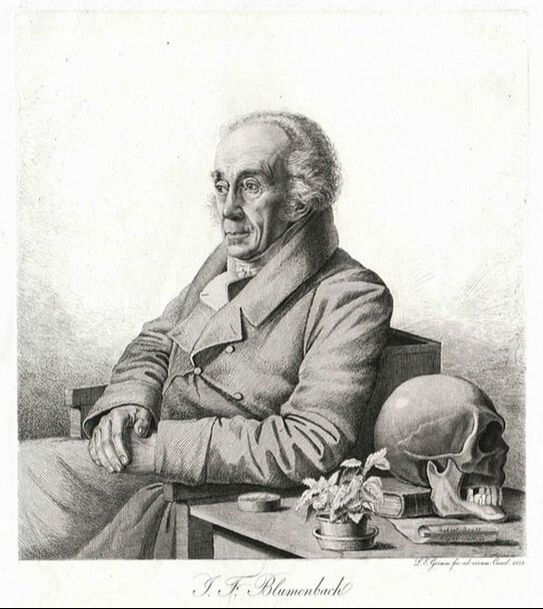Scott AndersonActs 4:5-12 † Psalm 23 † 1 John 3:16-24 † John 10:11-18
A video version of this sermon can be found here. Robin DiAngelo’s family was struggling. She and her two sisters were raised in poverty in the 1960s by their single mom: “…we were flat out.” She says. “We lived in our car. We were not bathed.” DiAngelo is the author of White Fragility, I suspect, one of the most important books of our time. It was clear DiAngelo’s mother was helpless and at her wits end. They had no resources and no help. They were hungry, but here’s the kicker: if she would reach out to take, for example, some food someone had left out, DiAngelo’s mother would stop her: ‘Don’t touch that. You don’t know who touched it, it could have been a colored person.’ ‘Don’t sit there. You don’t know who sat there, it could have been a colored person.’ That moment crystalized something for DiAngelo: The message was clear: If a colored person touched it, it would be dirty. But I was dirty. Yet in those moments, the shame of poverty was lifted. I wasn’t poor anymore. I was white.”
0 Comments
Scott AndersonPsalm 118:1-2, 19-29 † Mark 11:1-11
A video version of this sermon can be found here. We have been marching for a long time. I was a cold war baby. I remember as a young boy having it seared into my head that the Soviet Union was a ruthless, godless nation that brainwashed its people into believing crazy things that I, as a privileged child of a true and free democracy was safe from. It was a powerful message that shaped me. In fact, it took me until college to begin to realize that I just may have been played, that it was entirely possible that I too had been brainwashed—that messages of supremacy and themes of otherness and images of power had been reinforced in my life and my own culture that shaped me toward some understandings and soured me to others. I began to suspect when I got to know people who thought differently, who shaped their lives around values and priorities that authoritative voices in my own life had learned to fear or reject. I began to suspect when I traveled to places that I understood from my childhood formation had little value or interest and discovered that I learned, that I grew, that my eyes were opened. Scott AndersonJeremiah 31:31-34 † Psalm 119:9-16 † Hebrews 5:5-10 † John 12:20-33
A video version of this sermon can be found here. Unless a grain of wheat falls into the earth and dies, it remains just a single grain; but if it dies, it bears much fruit. Here is the crux, the turning point of John’s gospel. It marks the major turn in the structure of the book. The hour has indeed come, even though we are only halfway through the gospel. “Now is the judgment of this world; now the ruler of this world will be driven out.”[i] We should not miss this. And if we do not understand, we are wise to listen and open ourselves to it until we do. To accentuate the point, we hear not only the voice of Jesus, but the voice of heaven affirm it. In the other gospels—in Matthew, Mark, and Luke—the voice of God is also heard, but at Jesus’ baptism. In John, it is heard here and here only. “I have glorified it—God’s name, that is—and I will glorify it again.” Why here? And what does it mean? This is a strange affirmation to a strange fruit. Perhaps it seems counterintuitive to believe that death breeds life. We do know, though, the truth of this text so central to our Christian faith. We have seen again and again the power of self-giving and sacrifice. Martyrs through history have given themselves so that life would change for the many. Scott AndersonGenesis 17:1-7, 15-16 † Psalm 22:23-31 † Romans 4:13-25 † Mark 8:31-9:1 A video of this sermon is available here. In the 1920s and 30s, towns and cities across the United States tried to outdo one another in building thousands of magnificent public swimming pools for their communities. They were often enormous and elaborate—community gathering places built for a rapidly expanding middle class to enjoy together. There was the Big Pool in Garden City, Kansas. Dug by hand and opened in 1922, the bath house and wading pool were added by the WPA in the 1930s. Elephants from nearby Lee Richardson Zoo swam in it after it closed for the season. In the 1980s in a promotional stunt, two Garden City youth skied on the pool to promote Finnup Park, Lee Richardson Zoo, and the world’s largest outdoor free concrete municipal swimming pool. The pool is currently closed for another face-lift with plans to reopen for a grand centennial celebration.
Scott AndersonGenesis 9:8-17 † Psalm 25:1-10 † 1 Peter 3:18-22 † Mark 1:9-15 A video version of this sermon can be found here. Here’s a pro tip for you. When it comes to learning, repetition is less important than struggle. This is the insight of what is known as the generation effect according to David Epstein in his book Range. Struggling to generate an answer on your own, even a wrong one, enhances subsequent learning.[i] It helps learning over the long-term in at least two ways—it makes it stick and it enhances our ability to apply our learning broadly. The struggle—doing the work—is the key. Epstein explains, “for learning that is both durable (it sticks) and flexible (it can be applied broadly), fast and easy is precisely the problem.”[ii]
Scott AndersonDeuteronomy 18:15-20 † Psalm 111 † 1 Corinthians 8:1-13 † Mark 1:21-28
A video form of this meditation can be found here. We know the old adage about first impressions and how deeply they imprint an expectation. Such is the case here, I suspect. This is, after all, the inauguration of Jesus’ public ministry—the first impression. It is his inaugural act on the heels of assembling his leadership team. Inaugurations say a lot, I suspect, about our leaders. And each of the gospels underline something a little different about Jesus. Matthew begins with the Sermon on the Mount, presenting us with a version of Jesus who is a definitive teacher. Luke offers a vision statement of social renewal—Jesus as the one to bring good news to the poor. John skips the ceremony and goes straight to the wedding party at Cana and a sudden abundance of good wine to show us a savior who came for life abundant. Mark’s Jesus is a little like Marshawn Lynch was back in the day, I suppose—he’s all about that action, boss. He leaps into the fray. He starts where we are today, in the synagogue—at church, if you like—with a new teaching, with authority. But it isn’t just about words, certainly not empty words, not words alone. These words evoke something big. They have power. They change everything. You know. It’s pretty standard stuff when it comes to what we’ve come to expect in worship, I suppose. A teaching that leads to a loud encounter with an unclean spirit. Screaming. Convulsions. Pews flying. An exorcism. You know Tuesday, or, I guess, Sunday, as it were. Scott Anderson1 Samuel 3:1-10 † Psalm 139:1-6, 13-18 † 1 Corinthians 6:12-20 † John 1:43-51
A video form of this meditation can be found here. How do we hear the voice of God? How do we recognize the voice of truth when it speaks? How do we understand what we see with our own eyes, and the truth of it? I suspect this is one of the most challenging aspects of the current moment. As we watch the crescendo of right-wing domestic terrorism, shaped and fueled as it has been by mistruths and lies, spreading into all institutions and corners of society. What hope do we have to hold out for our better angels and a future that is truer and safer and more equitable when our own perspectives are dismissed by those who seem to live in entirely different plausibility structures? And on what basis can we be sure that our perspective is fundamentally better than that of these our current president and his supporters call patriots? While I hold to my own convictions, perhaps more strongly now than ever, I know my own perspectives are sometimes incomplete and flawed. I keep thinking of a viral video I suspect most of us have seen of capitol police officer Eugene Goodman making his way up the capitol steps with dozens of rioters menacing him.[i] Scott AndersonGenesis 1:1-5 † Psalm 29 † Acts 19:1-7 † Mark 1:4-11 A video version of this sermon can be found here.
Scott AndersonEzekiel 18:1-4, 25-32 † Psalm 25:1-9 † Philippians 2:1-13 † Matthew 21:23-32 Some of the most striking painted rock art in the world is found in the sea caves of Norway’s western coastline. They are located in wild, remote, Arctic areas where peaks plunge into the ocean, hammered by ice and wave actions over millennia. There are twelve such painted caves, containing around 170 simple stick figures, arms and legs stretched wide as if they are dancing or leaping. These are different that the far more common petroglyphs which have been carved into rock here and throughout the world by the ancients. These are paintings, made using iron oxide pigment, daubed using fingers or brushes some two to three thousand years ago by Bronze Age hunter-gatherer-fisher people who made their lives along an isolated coastline. The art that they made was preserved in remote caves in wild places. Scott AndersonJonah 3:10-4:11 † Psalm 145:1-8 † Philippians 1:21-30 † Matthew 20:1-16
You can find a video copy of this sermon in the context of worship here. They are both right, aren’t they? This is no case of fake news. It’s just a problem with perception and location and what’s fair. The laborers who were hired first thing in the morning, who went out and put in their twelve hours under the hot sun cannot abide that they are paid the same as those last to join the party, who work an hour at best—and get just as much. It is not fair. Or, to be more precise, it is not equitable. This is true. And yet, the landowner has an equally valid point, doesn’t he? Did I not keep our agreement? We negotiated for the usual day’s wage at the beginning. This is what I’ve given you. How have I wronged you? |
St. Andrew SermonsCategories
All
|







 RSS Feed
RSS Feed